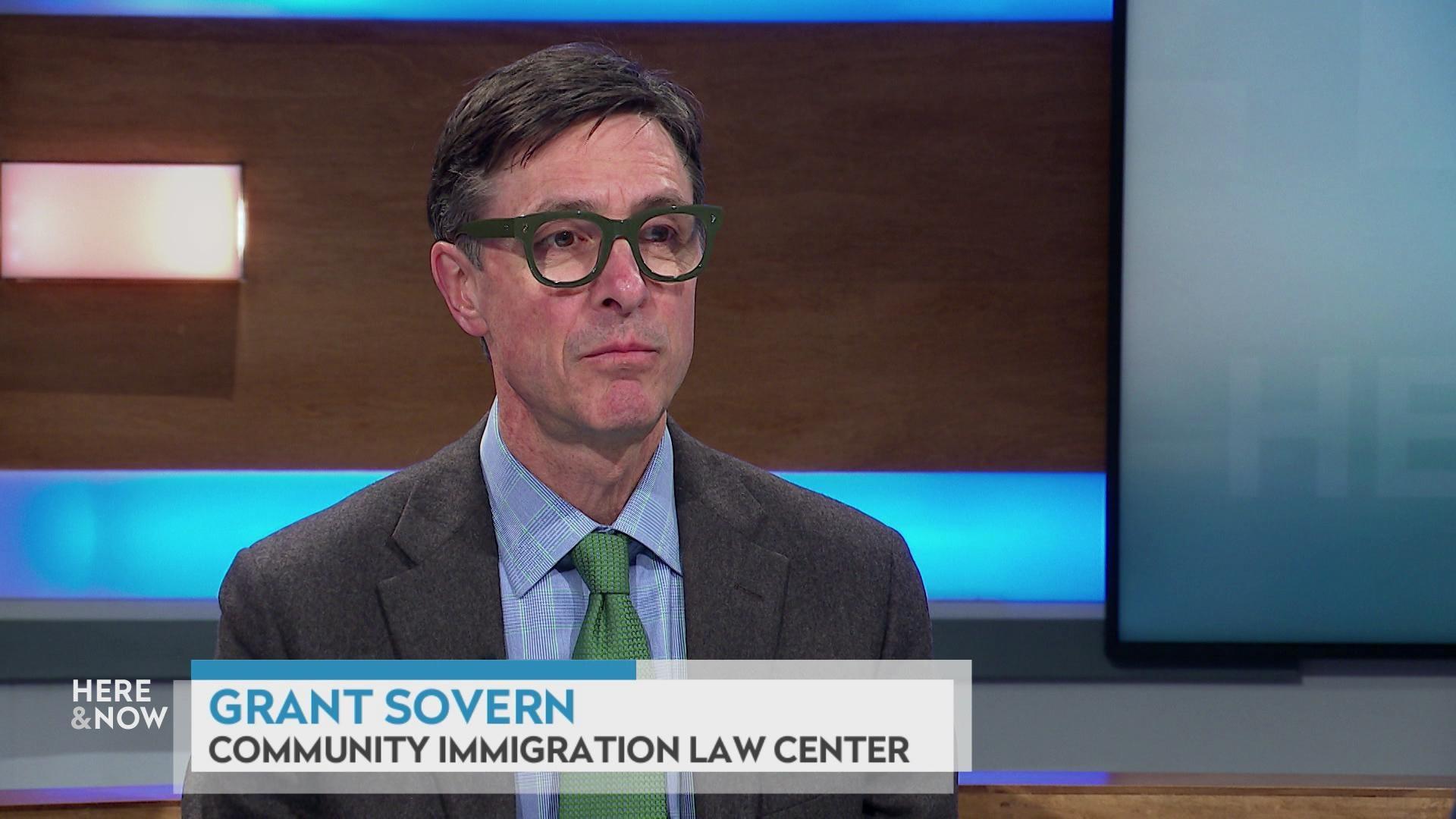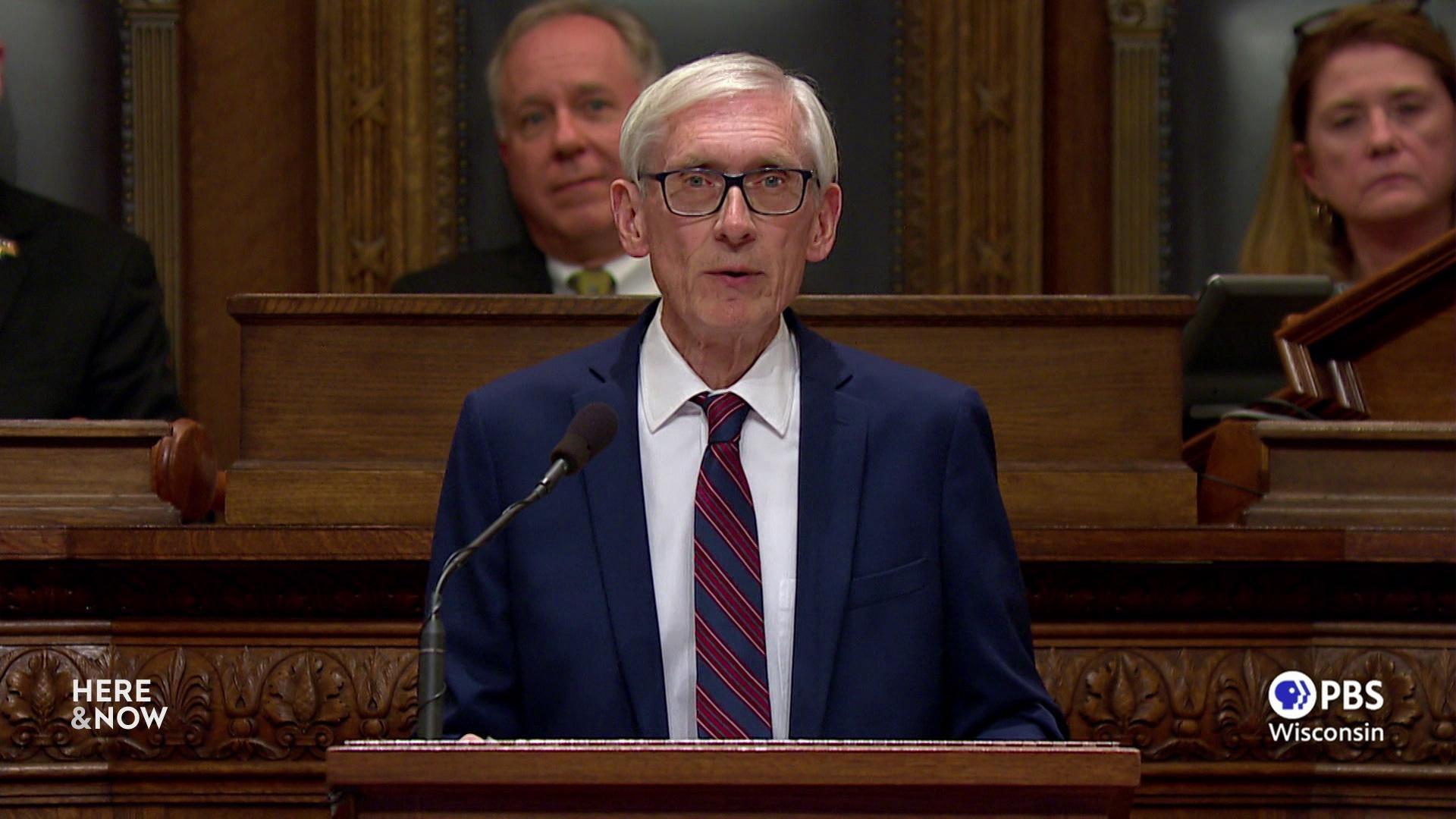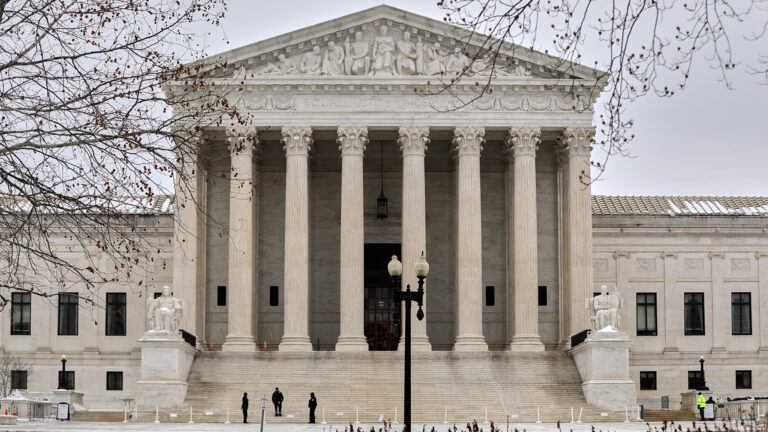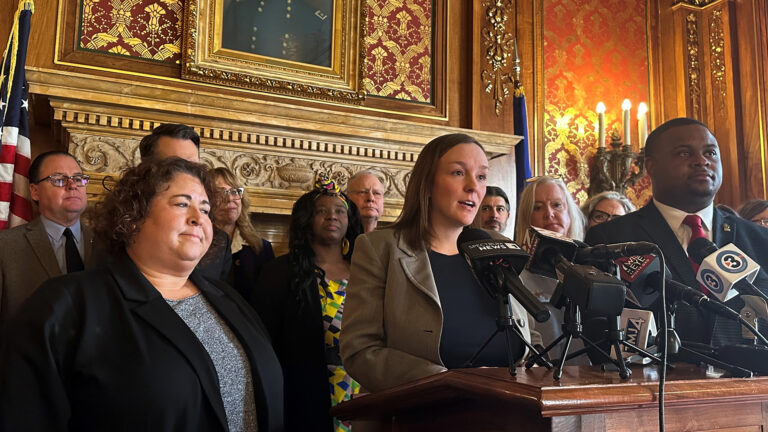'Here & Now' Highlights: Zac Schultz, State Sen. Jesse James, Tracy Vruwink, Jeanne Duffy
Here's what guests on the June 13, 2025 episode said about lawmakers writing the state budget, a pilot program for student mental health. Impacts of federal funding cuts in one community and the status of AmeriCorps projects in Wisconsin.
By Frederica Freyberg | Here & Now
June 16, 2025

Frederica Freyberg and Zac Schultz (Credit: PBS Wisconsin)
As state budget writers conduct their final weeks of work, the Republican-led Joint Finance Committee passed K-12 spending plans and tax cut provisions — Here & Now’s Zac Schultz explained what’s next. Children’s mental health in school and at home is the focus of a proposal to pilot expanded services to students and families, and bill author state Sen. Jesse James said he hopes this type of program proves measurably successful. Cuts to federal funding for grants touch the lives of people around Wisconsin. and in the small city of Nekoosa, Tracy Vruwink manages programs that provide food assistance and child care affected by uncertain support. One national program programs across the state of Wisconsin – Americorps – saw the Trump administration move to terminate its funding , which was then resumed under a court order — Jeanne Duffy of Serve Wisconsin, which assembles volunteers for the program, said it’s been like a roller coaster.
Zac Schultz
Senior political reporter, PBS Wisconsin
- Billions of dollars separate the 2025-27 state budget provisions assembled by legislative Republicans from the two-year spending plan proposed by Democratic Gov. Tony Evers first introduced. The Wisconsin Legislature’s Joint Committee on Finance voted to increase K-12 school funding by $336 million, which is $3 billion less than Evers called for. On special education funding, Republican budget writers targeted $228 million, which puts the percentage of state funding going to local school districts for those services at 37.5% in the second year, far short of the 60% wanted by advocates and Evers. On state income tax levels, Republicans expanded the second lowest bracket taxed at 4.4% to single filers making up to about $50,000 up from a $30,000 level. They also included $700 million in tax cuts for retirees, with a state income tax exclusion covering the first $24,000 for filers 67 years or older. Schultz described why the budget gulf between Republicans and Evers is so wide.
- Schultz: “The question that remains to be seen is how Gov. Evers will take this when this budget eventually gets to his desk. We had known all along that there was going to be a big gulf between what he wanted and what Republicans would agree to, but this is even bigger than what we had thought at first, simply because they’re not funding any of the per-pupil aid that Gov. Evers created in his partial veto of the last budget. Remember the 400-year veto that increase per pupil funding by $325 a kid per year for 400 years — the Supreme Court held that up as legal, but Republicans did not put any state money behind that, so it will be up to individual school districts. Their levy will be increased, but you have to then decide if they want to raise property taxes to gather all that revenue for operations.”
State Sen. Jesse James
R-Thorp
- While both sides of the political aisle want more money in the state budget to address student mental health, Republican lawmakers are putting forth less than Democratic Gov. Evers proposed. James said there’s a concern among the majority that lots of money can be spent on the problem without tracking the success of the expenditures. He described SB 245, a bill to establish a school-centered wrap-around pilot program for student mental health, as including their families, even during the summer months. This pilot would start small in two schools.
- James: “One would be an urban, semi-urban school, and the other one would be a rural school. You know, the things that happen up in the village of Cadott happen in the city of Milwaukee. And I think the key element to this is the data collecting. There will be a report that will be, have to be submitted from whoever were to receive the grant funding for this, and they have to provide a report back. And that’s some of the issues that we have in our state is the lack of information sharing.”
Tracy Vruwink
Child care director, School District of Nekoosa
- Vruwink oversees programs that provide food assistance and child care in Nekoosa, a community in central Wisconsin where nearly 60% of residents live just above or at the poverty level. She intersects with programs like AmeriCorps and the 21st Century Community Learning Centers. She described what that grant provides and her fears of losing it.
- Vruwink: “It’s before and after school. So, we open at 6.30 in the morning until school starts. We do enrichment activities. We feed the kids, sometimes breakfast, depending — a lot of kids come to school hungry. After school, they come, we do activities. They go outside, they go to the gym. We do homework help, we do career launch, we do snack. Again, there’s a lot of these kids that come in here and have snack, and then they don’t eat again until they come back in the morning, which is very unfortunate. But we have food to provide them and we help support the backpack program where the kids get to take home food for the weekend so that they have food to eat when they’re not in school. … The funding for this program is what helps the kids, and if we don’t have that funding we’d have to find the funding from somewhere else, or the Boys and Girls Club would have to run it themselves, and I don’t believe we would be able to run a morning program at that point/ It would be strictly afternoon. All the things that they do would be cut back because we wouldn’t have the funding to do that, so it would just — it would make a huge difference. We might be able to even take less kids, and that would be an enormous shock for the community.”
Jeanne Duffy
Executive Director, Serve Wisconsin
- Serve Wisconsin is a state program that recruits and trains volunteer workers who receive a stipend for living expenses for the national AmeriCorps program. Wisconsin was among the states that sued over the Trump administration’s nearly $400 million dollar cut to AmeriCorps. A federal court issued a temporary injunction restoring its programs and funding. In Wisconsin, about $14 million supports AmeriCorps programs in schools, health-care clinics and non-profit organizations. Duffy said the loss and sudden restoration of federal funding has been unsettling.
- Duffy: “It’s been a roller coaster, and as you know, it’s a lot easier to break things than to bring things back. We had almost 400 members serving in April when we got notice that the grants were terminated, and many of those people are between ages 20 and 25, so they can’t sit around and wait for another six weeks to see if they are gonna be brought back to service. So, a lot of our members have already moved on. We’re very lucky, many of our programs kept their members on in service, so they can instantly return to service. But it’s a hard road to hoe to bring things back.”
Watch new episodes of Here & Now at 7:30 p.m. on Fridays.
 Passport
Passport











Follow Us